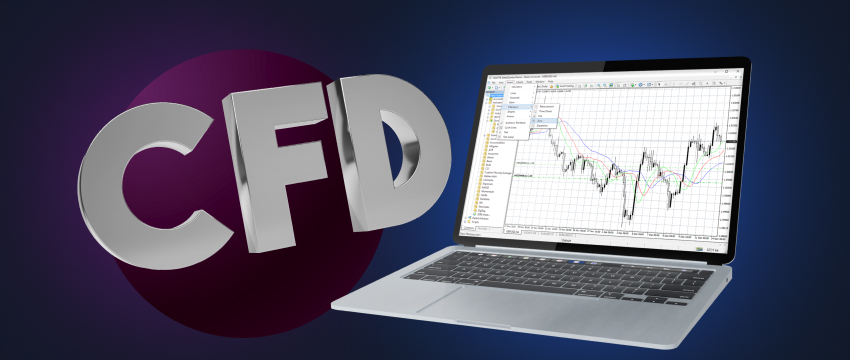The forex market attracts a wide range of traders. Each trader employs their own trading style. These styles help them achieve their financial objectives. In this blog, we’ll explore the different types of forex traders. We will also discuss the characteristics distinctive to each type. Additionally, we will look at the psychological traits they typically possess.
Different types of forex traders
Day traders
Trading daily is probably one of the most popular short-term trading styles. Day traders will usually open and close positions within the same trading day, avoiding overnight risks. This may range from just a few to several dozen trades for seconds to hours to exploit price movements.
Day traders make heavy use of technical analysis to come to trading decisions. They are typically quick on their toes, adjusting their trading strategies as and when the moment calls for it. They are patient but also quickly adaptable to rapidly changing market conditions.
Scalpers
Scalping is another popular form of day trading. However, it is higher in intensity. Traders open multiple trades within a short period. They hold onto those positions for only seconds to minutes. The number of trades may even reach the hundreds, with each position potentially resulting in small accumulative gains.
Scalpers hold positions for a very short time, so they must make split-second decisions. Like day traders, scalpers rely heavily on technical analysis as well.
Scalping is a fast-paced trading style. Scalpers are undoubtedly under a lot of pressure. The ability to remain calm is vital for success in this approach. As far as temperament is concerned, scalpers usually display a lot of patience and focus.
Swing traders
Unlike day traders or scalpers, swing traders tend to hold onto positions for a few days to several weeks and usually execute fewer trades. They typically target larger price movements and focus on quality trades rather than hitting a particular volume of trades.
Swing traders hold positions for a longer period. As a result, they use both technical and fundamental analysis. This helps them identify trading opportunities and make informed trading decisions.
Swing traders have a more relaxed approach to trading. However, they maintain a strong handle on their emotions. This is especially important when trades move in unanticipated directions.

Position traders
Position trading is another long-term trading approach where traders hold positions for extended periods spanning weeks, months, or even years.
These types of traders usually execute fewer trades in comparison to the aforementioned strategies but rely heavily on fundamental analysis to make a trading decision. This includes the monitoring of economic indicators, economic news, events and releases, geopolitical uncertainties, global environmental disasters, etc.
Psychological attributes inherent to position traders include incredible patience in pursuit of long-term gains, a robust understanding of economic trends worldwide, emotional stability, confidence in themselves and in the analysis and research that they conduct, and being highly resilient.
News traders
A news trader is someone who opens or closes positions before or after a news announcement. The ability to trade the news requires a good understanding of economic indicators, i.e. macroeconomic factors that have the ability to impact the market. Indicators include interest rates, inflation, GDP, unemployment figures, etc.
For those opting to engage in news trading, paying attention to major economic data releases is vital, as they typically indicate the strength of a particular economy or indicate the direction a given currency may take.
One of the ways to track these sorts of announcements is by using an economic calendar, which keeps a trader informed of key releases, enabling them to properly plan trades and make better informed decisions.
Because of the rapid changes to a market that news trading may incur, a news trader must maintain a high stress tolerance and remain calm to be able to take decisions under extreme pressure. News traders are very focused to avoid missing critical news and are patient, waiting for just the right time to execute a trade.
Algorithmic traders
Also known as automated or algo trading, this strategy uses computer programs to execute trades based on predefined criteria. This approach to trading has become increasingly popular, largely because of its ability to eliminate emotional bias and execute trades at a pace that no human can achieve.
An algorithmic trader is usually someone who is comfortable with technology and can analyse quantitative data. This is because automated trading is largely data-driven.
Copy traders
A copy trader is someone who copies (replicates) the trades of more experienced traders. It is usually undertaken by traders with insufficient expertise in a particular market or who have limited time to dedicate to trading.
This can be done manually or automatically. Copytrading in forex has become relatively popular because price movements are frequent, albeit small, which requires constant monitoring. With copy trading, a trader can simply copy another trader’s trades rather than analysing or scanning the forex market themselves.
Copy trading is also used as a means of diversification, as a forex trader can copy multiple traders, thereby diversifying their risk across different strategies. In regards to psychological attributes, copy traders have to exhibit patience and trust in the trader that they’re copying, as well as avoid the temptation to interfere with copied positions.

Key strategies for managing emotions in forex trading
Regardless of what type of trader you are, managing your emotions is crucial for making rational decisions and boosting trading outcomes. So important is this that trading psychology, which refers to the impact that feelings have on financial decision-making, has become an increasingly popular subject of study.
There are strategies that exist to help you get emotions like fear, greed, anxiety, impulsion, arrogance, and panic under better control—take your pick; they all have the potential to eliminate sound judgment, resulting in poor financial outcomes.
Learning how to manage these feelings is crucial, regardless of whether you are new to trading or a consummate professional. So, what are some of the ways that successful traders reduce emotive trading and instead trade with rationale and objective reasoning?
- They maintain discipline and follow their trading plan to avoid impulsive decisions that could lead to losses.
- They exhibit patience and long-term perspective, understanding that not every market move needs to be traded.
- They accept that loss is a normal part of the trading process without losing confidence in their expertise and skill.
- They are flexible, and rather than be driven by panic, they adjust their strategies based on evolving market conditions.
- They are self-aware and have a good understanding of their own strengths and weaknesses, allowing them to improve where necessary.
- They carefully consider the potential risk of each trade and implement appropriate risk management measures to protect their capital.

Trading with T4Trade
T4Trade is a popular global broker with clients worldwide. The broker offers top-tier, 24/5 multilingual customer support, cutting-edge trading platforms, and flexible trading conditions.
T4Trade is also a great go-to resource for traders looking to learn more about forex trading in a user-friendly way.
A variety of videos, podcasts, eBooks, webinars, and videos-on-demand are curated by in-house specialists, catering to all types of traders.
T4Trade traders can also choose from 300 trading instruments across 6 asset classes and enjoy flexible leverage, competitive spreads, fast trade execution, and seamless deposit and withdrawal options.
Traders can also choose from a range of trading accounts that align best with their specific needs, budgets, and individual preferences.
Penafian: This material is for general informational and educational purposes only and should not be considered investment advice or an investment recommendation. T4Trade is not responsible for any data provided by third parties referenced or hyperlinked in this communication.




